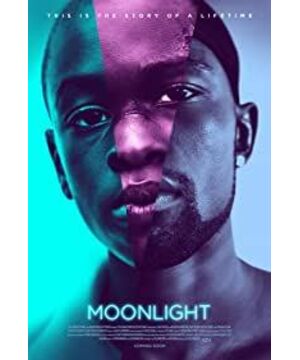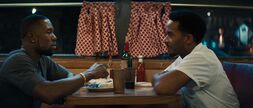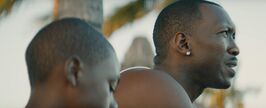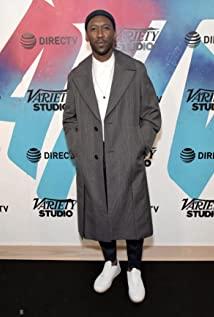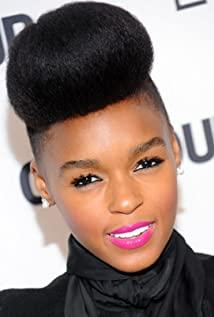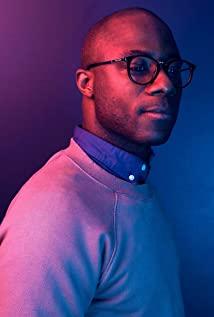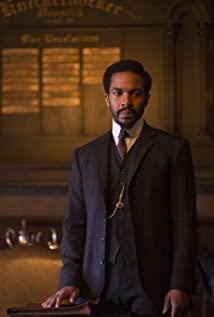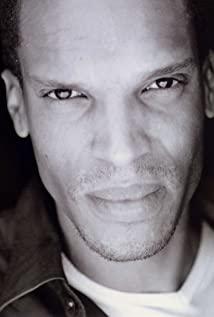This article was first published on Talking about Sex and Love http://weibo.com/ttarticle/p/show?id=2309404080211263123898
"Moonlight" is very different from what I imagined. Before going to the movie, I had many presuppositions about a movie in which the protagonist is a poor black boy. But this movie does not seem to fall into these pitfalls: the drug-addicted mother Paula is sometimes eager to protect her son and sometimes is addicted to drugs, the drug boss Juan has a seemingly warm family life, and the actor Chiron finally did not "inspiring" to make a statement. After Fan's "I want to be myself" speech, I worked hard to change my destiny with knowledge. The film didn’t even deliberately show it—we thought it would show it—"racism", the kind of things that we can almost predict when walking into a restaurant and being ignored by white waiters, walking on the street and getting rolled eyes. Common bridge segment. On the contrary, there are no white characters that discriminate against him in Chiron’s story, because this is not a movie about the "black" ethnic group or American society that we saw, but a movie about Chiron’s heart and soul. Movies starting from memory, tell their own stories from his perspective. But this is not to say that the film took place in a vacuum: poverty, drugs, prison, and the loneliness of the growing environment. These tell us that the film has a broad perspective on the environment in which the protagonist grew up.
Black people, homosexuality, drug dealing, single mothers. These tags are all over the movie. Some people say that this movie is entirely based on labels, and some people say that the growth story described in this movie does not need these labels at all, and that it can be established for individual boys. The artistic techniques of this film can be discussed (the director is a Wong Kar-wai fan, and the stylization of the images is quite eye-catching), but what it wants to tell is how these labels are not just labels, and the person who is covered with labels, how he has grown and heart. When we joked about the "political correctness" of the United States, and said how the protagonist should make up various marginal identities, "poor black gays" sounded like a joke that mocked political correctness. But Chiron is not, he is not a puppet full of edge tags. As a character full of memories and pain, he is not just a facial makeup, used to embody the stereotype about what ethnic group-or used to "no matter what color/sexual orientation you are, as long as you work hard, you can succeed". Bowl of chicken soup. His story allows us to see how he, as a person with these intertwined identities, was squeezed to the edge of life, how he was caught in the net of life, and how he gained power.
A facialized character is often easy to predict and conforms to the stereotype. The inner drama can be seen through at a glance, so only a face is needed. "Moonlight Boy" uses various means to oppose this labeling. The image style, symphonic music, the main tone of indigo blue, and the slow narrative rhythm all point to the heart of the character. In his heart is his own history buried under such labels, the ridicule and bullying he has experienced, his revenge and his entanglement. In these layers of labels and intertwined dilemmas, he struggled to find his place in the world. Chiron's growth story cannot be easily changed to another boy. These identities are intertwined to form his world, just as the story of "Lan Yu" cannot be moved to the United States, "Happy Together" will not happen in ancient times. Chiron cannot be someone else.
Drug dealer Juan accidentally met 10-year-old Chiron and gradually gave him another home with his girlfriend. Chiron was squeezed and bullied. He was called faggot. He had no channels to ask for help. He could only go to Juan and ask him what faggot meant. Juan understood immediately. He knew that Chiron would ask because he must have been scolded like this. Juan’s answer was simple, but very touching: “Faggot is a word used to make gays feel uncomfortable.” He told Chiron that he used this word to scold you while he bullied you, chased you, and besieged you. , The fault lies with them, not with you.
After Chiron grew up, he grew from a thin boy who was bullied to a big man with gold teeth, and became a street fighter like Juan. He used his current mighty masculinity to avenge the bullying in the past. Can masculinity and homosexuality be compatible? Layer after layer of his story is written about the pain caused by gender temperament and sexual orientation: he was called faggot, he was chased by classmates since he was a child, and when he was 16 years old, he ignorantly met his beloved friend Kevin. , And his classmates surrounded them and urged him to beat him. Amidst the crowd's booing, Kevin was so afraid of being considered a homosexual, trembling but unable to start. Of course he understands this fear. This is his fear. In order to exempt Kevin from the danger of humiliation, he took the initiative to let Kevin fight, and then went to avenge the instigated and provoked classmate.
When he grew up, Chiron did not get rid of this fear. He exercised as soon as he woke up in the morning, with a mighty figure, but alone. In his regular, even disciplined adult life, he uses his figure, wealth, loneliness and silence to mark his own masculinity, instead of using the beauties around him to show that he is "many enough" like a companion. ". In the last part of the film, he returns to his hometown. Kevin is already a chef at this time. After serving him in the restaurant, he invites him to go back to his home to continue the past. Chiron has been taciturn and has nothing to say about himself, but in those ten minutes, we looked at such a burly man, showing the tenderness and timidity of his youth little by little, and his face slowly emerged. 16-year-old self. He is still guarding himself with silence, but he is also willing to bravely reveal the desire and fear buried in his heart in front of Kevin. In front of Kevin, he seemed determined to take a gamble, shyly and actively said, "After you, I have not touched anyone else." I still remember you, I still remember the beach by the sea that night, I dare not let others Knowing this side of me, a man living on the streets, I dare not admit the pain of losing love in my heart and longing for someone. But maybe, I can let you know.
And the last scene of the movie is not a sex scene. If it's a sex scene, it's too much in the box that the audience wants to watch. If we show us a brawny man with a sturdy back, then let us see him in bed with the warm fragrance of nephrite jade, which is a common drama for love to conquer everything. But that is what we want to see in the movie. We want to peek into the other side of the brawny man with the door closed. We want to see how he can show that side clearly and clearly with his body. But the film happens to not be like this. We saw the ignorant and shy sexual exploration of the 16-year-old boy, but we couldn't see the two adults being exposed to each other because they refused to be peeped into the body. He is not a facial makeup. The images of a strong man with eight pack abs and a black man with a sturdy back do not sum up his story. He remembers the unforgettable moments in his growth. Chiron's love and pain are left to himself in silence, but this silent love and pain fills him with dignity. This is the dignity the world refuses to give him.
View more about Moonlight reviews


